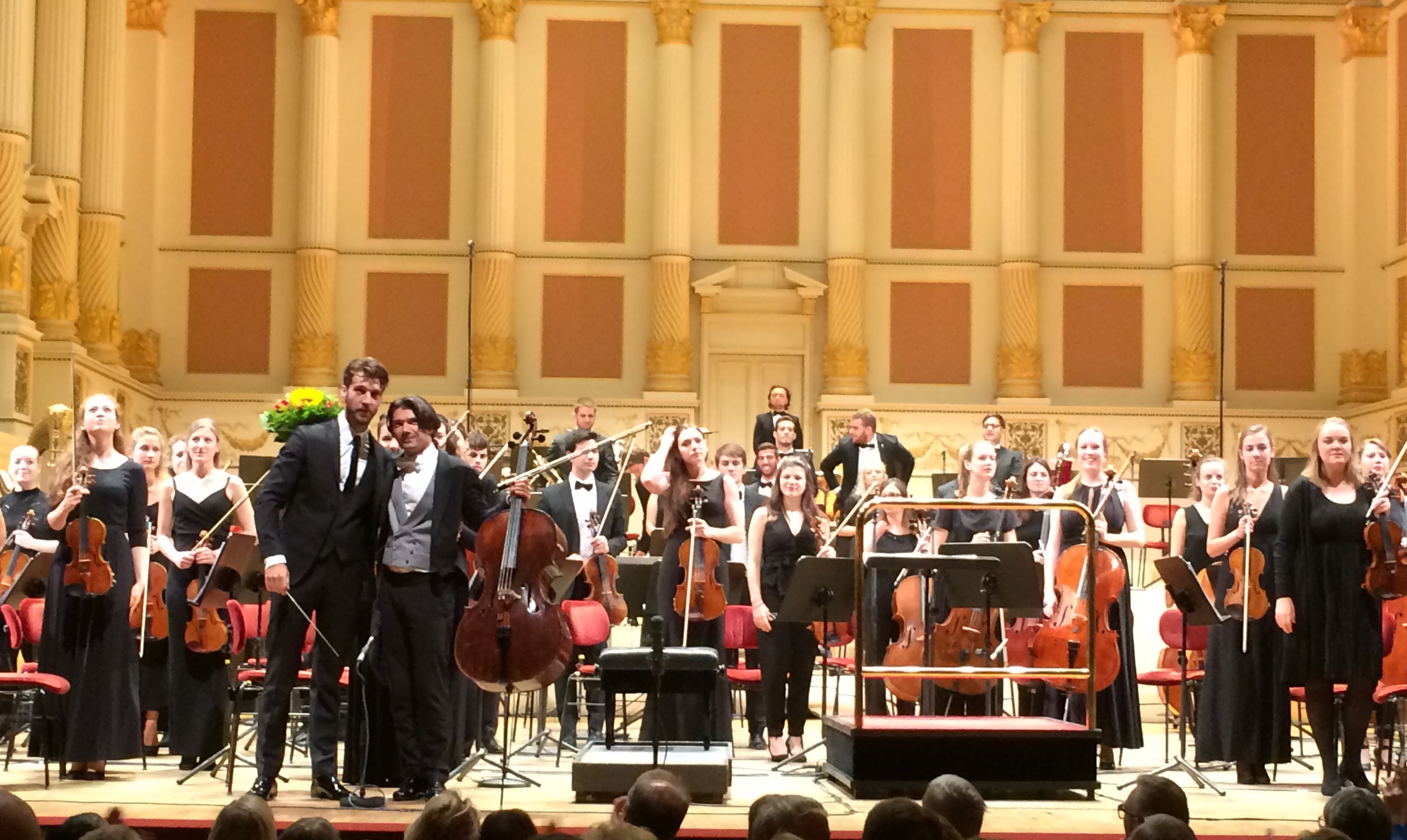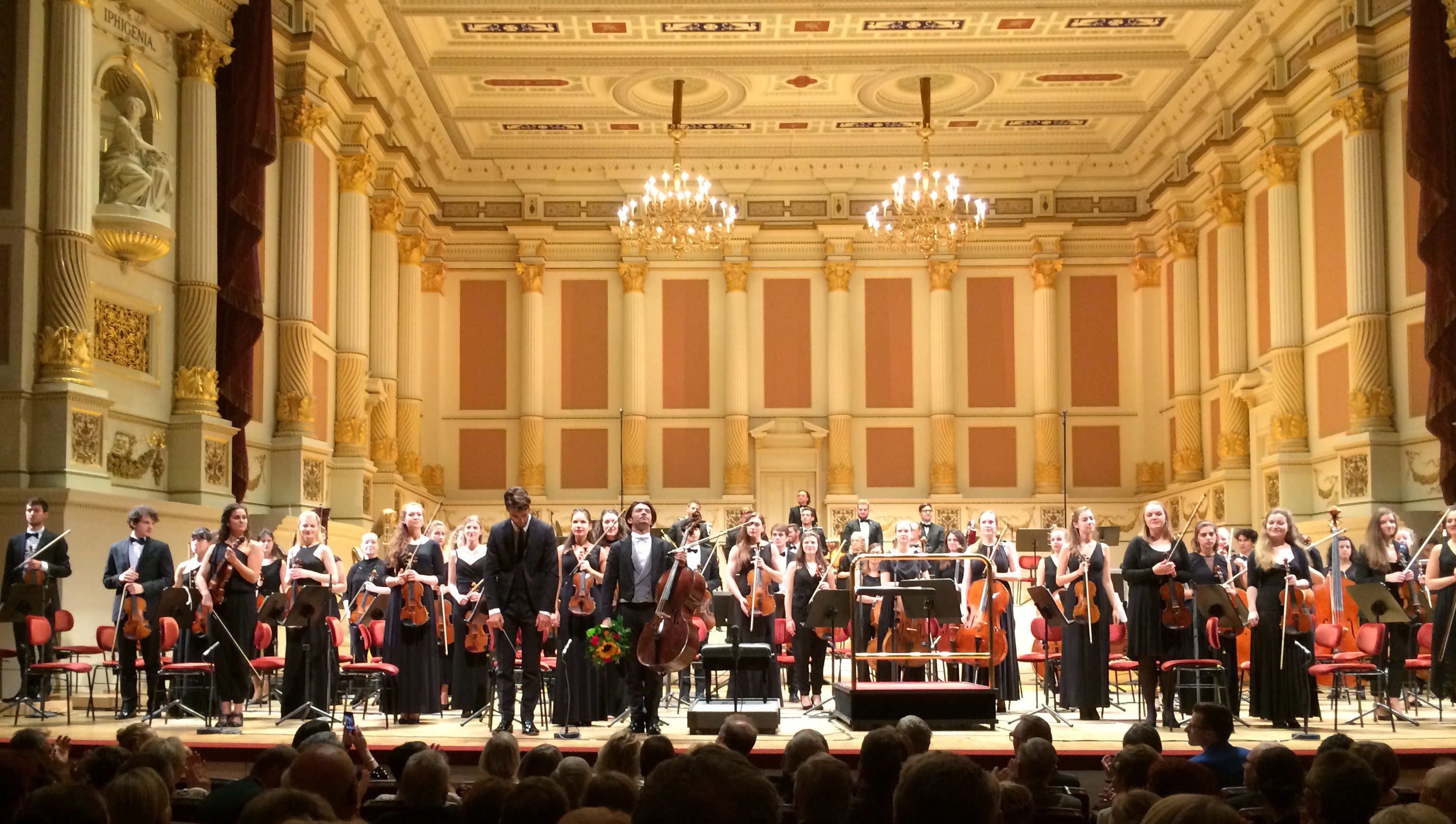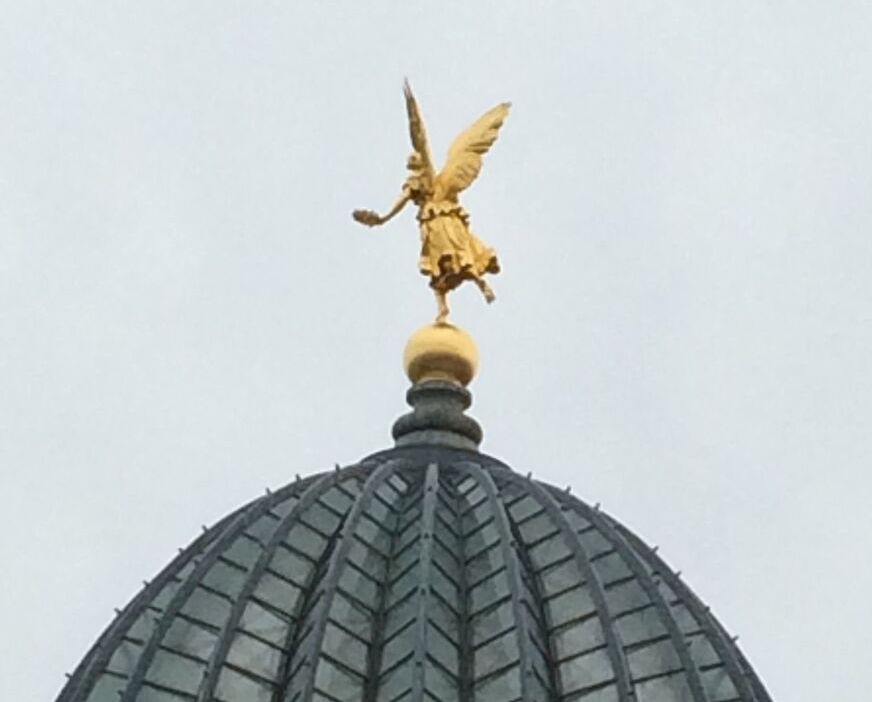
Photo: mine. Please do not reproduce without permission.
The music of Shostakovich is not thought of by many people as an easy listen. Frequently characterized as discordant, atonal, and difficult, the work of the twentieth century Russian composer is at once epic, intimate, explosive, emotional, and very frequently uncompromising. It’s also one of my absolute favorites; when done well, it is one of the most rewarding of musical experiences.
And so it was an easy decision to see it live in Dresden this past weekend, especially since this particular performance featured one of my favorite artists. French cellist Gautier Capuçon (who I interviewed earlier this year) was on tour with the acclaimed Gustav Mahler Jugendorchester (Youth Orchestra, or GMJO), and would be performing the Concerto No.1 for Cello and Orchestra in E-flat major, op.107 in Dresden, the day (make that morning) after the opera. The timing was ideal, though it was, admittedly, very jarring to go, a mere twelve hours or so, from the melodic sweep of Giuseppe Verdi and into the busy, cacophonous world of Dmitri Shostakovich, with a brief (if very lovingly performed) stop off with Anton Webern’s swirling tone poem, Im Sommerwind (“In the Summer Wind”). The four-movement cello concerto, dedicated to and premiered by Mstislav Rostropovich in 1959, moves, with equal parts grace and awkwardness, between bracingly modern and folkishly traditional. It’s this high-wire act, of desperately seeking a balance between the two, some pyrotechnics on the part of the soloist, and the composer’s frequent couching of his inner rebellious tendencies within a larger framework (fascinating on its own, and no less honest), that makes this work such a very rewarding listen, and one of my big favorites.
Understanding the work through the lens of history is useful. Shostakovich had already faced incredibly political pressure by authorities in Soviet-era Russia by the time of the concerto’s composition, most notably over his opera Lady MacBeth of Mtsensk. An editorial (the infamously titled “Muddle Instead of Music“) in 1936, two years after its premiere (notably after Stalin had seen the work), heralded a dramatic turning point in Shostakovich’s creative life, with the composer seeing commissions and income dwindle away in the aftermath. He became far more cautious in his output, understandably — though it must be noted that the subtexts of his subsequent works are frequently littered with a zesty, hardly-contained fury, a quality I think finds its best and most shattering expression in his monumental 11th Symphony from 1957, ostensibly about the past but so much rooted in the composer’s deep struggles, internal and external. While it’s true that the worldwide fame he went on to enjoy eased many of the earlier pressures, there is still a special bite to this particular concerto (composed during a particularly successful period), one which is notable and very satisfying.
So while the program notes for the GMJO tour (by Hartmut Krones) note that “(a)s compared to other compositions by Shostakovich, the character of (the cello concerto) is relatively cheerful” — I’ve always found the piece to be restless, biting, its “relative” cheerfulness a sort of papery ruse, a sarcastic smirk, an eyebrow-cocking question which repeatedly asks the soloist for definitions that fit them, and the music, and the passing moments in time, best. It’s a sort of Rorschach Test for its soloist, moreso than many other concerti I would argue, and Capuçon’s performance this past Saturday with the GMJO underlined his deep artistry while seamlessly capturing his conversationally rich relationship with orchestra and conductor Lorenzo Viotti.

Photo: mine. Please do not reproduce without permission.
So what did he bring, then? What did the “test” reveal? Some of that zesty, under-the-hood-yet-not anger, as well as a relentless and at times, fiersome questing for those ever-liquid definitions. Together with Viotti’s instinctual conducting (the two share a very palpable aural understanding that nicely brought to mind the friendship between Shostakovich and Rostropovich), this was a performance that probed the depths of musical definitions — it didn’t merely dance at its edges. The initial motif of the first movement (Allegretto) was performed with a beguiling mix of angularity and sensuality, with instrumental juxtapositions and tempi, never settled on a staid set of sonic cliches, but with tones both clipped and rounded, and phrasing at once sour and sweet. This suitably unsettled energy continued through the second movement (Moderato), with its unmistakable lyricism — construction, destruction, reconstruction — reaching (racing at?) an apotheosis of sorts in the lengthy solo cadenza. Here Capuçon displayed a heady mix of virtuosity and great warmth, confidently fusing Shostakovich’s arch geometric chromaticism with the luscious central themes at start and finish, resulting in something at once thrilling and thoughtful.
And it’s those twin qualities that make Capuçon exciting to watch; he is so fiercely, and rightly, communicative — with audience, instrument, fellow musicians, and most especially the music itself. It’s one thing to hear the recording, or watch a digital broadcast, but it is, of course, entirely another to experience such a work live. When done well, this work, like so many within Shostakovich’s canon, is one whose sonic vibrations you feel within, in a real, tangible way; you don’t come out of a good performance the same way you went in. (And you shouldn’t.) Focusing on encores becomes something of a challenge in such cases — and so it went, that a loving performance of Pablo Casals “Song of the Birds”, done with the GMJO’s talented cello section, was initially difficult to fall into sonically, but again, Capuçon’s inherent communicativeness eased the transition. Of particular note was the way in which he aligned himself amongst the young cellists (not so surprising when one remembers he once played in the GMJO himself), allowing the spiralling, lilting sounds of Casals’ gentle lines to rise, then fall, then rise once more as one, allowing a long-awaited and necessary exhalation to properly conclude the unrelenting intensity heard earlier.

Photo: mine. Please do not reproduce without permission.
My recent visit to Dresden may have been far too brief, but it was filled with the sort of musical magic that reminded me that things discordant and difficult need not be daunting; when done so well, they lead to a wordless joy one feels resonating within, an embrace of authenticity, a homecoming.

1 Pingback